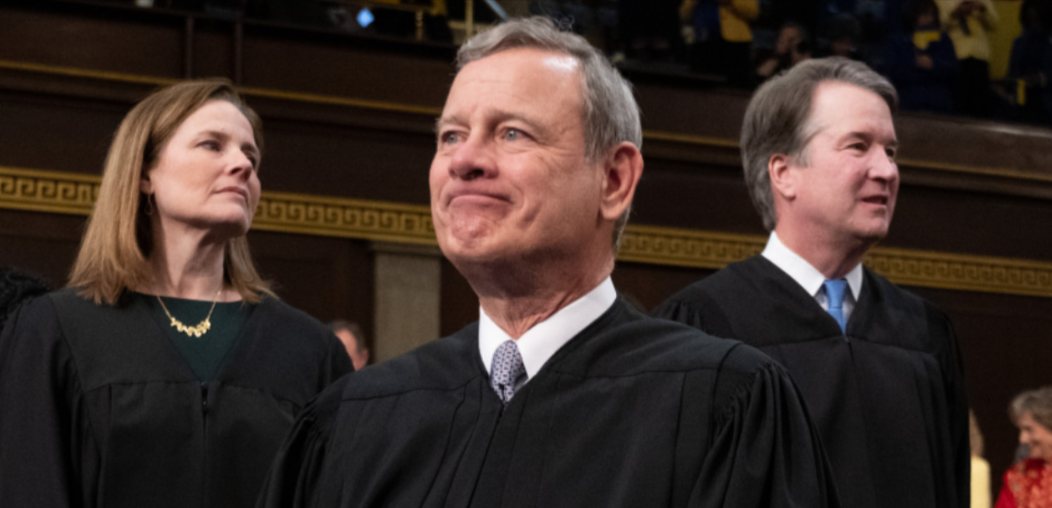Supreme Court Upholds VA Court Ruling Denying Veterans’ Benefits

The U.S. Supreme Court ruled against two veterans who claimed their disability claims were wrongfully denied, even though the evidence in their cases was evenly balanced.
In a 7-2 decision, the court determined that the U.S. Court of Appeals for Veterans Claims is not obligated to evaluate the Department of Veterans Affairs' application of the “benefit-of-the-doubt” rule in most situations. According to Military.com, this rule mandates that the VA approve a veteran’s claim when the evidence for and against approval is nearly equal.
Justice Clarence Thomas, writing for the majority, clarified that neither the VA claims court nor the Federal Circuit Court, which upheld the lower court’s ruling, had a legal obligation to conduct a benefit-of-the-doubt review in these cases.
Instead, Thomas stated in his March 5 opinion that the claims court's role was limited to reviewing whether the claims adjudicators or the Board of Veterans Appeals had made any errors, as reported by the outlet.
“We hold that the Veterans Court must review the VA’s application of the rule the same way it would any other determination — by reviewing legal issues [from the beginning] and factual issues for clear error,” Thomas wrote.
The case, Bufkin v. Collins, involved two veterans challenging the VA’s decisions. Joshua Bufkin, an Air Force veteran who served from 2005 to 2006, submitted a disability claim for post-traumatic stress disorder (PTSD) nearly seven years after leaving the military. While in service, he struggled with training for a military police role, attributing his difficulties to stress from his marriage. Court records show that Bufkin alleged his wife had threatened suicide if he remained in the military, prompting him to request a hardship discharge.
Later, when Bufkin sought VA healthcare and benefits, he argued that his PTSD was connected to his service. However, disagreements among VA doctors regarding both his diagnosis and its link to military service ultimately led to his claim being denied.
Norman Thornton, a former Army soldier who served from 1988 to 1991 and deployed during the 1990-1991 Persian Gulf War, initially received a 10% disability rating for PTSD, which was later increased to 50%. He appealed, asserting that his rating should have been even higher.
In both cases, the Board of Veterans Appeals examined the evidence, determining that Bufkin’s case contained conflicting information and that Thornton’s claim did not justify a higher rating.
The Veterans Court of Appeals later ruled that the claims adjudicators and the board had not made any errors, though it did not conduct a benefit-of-the-doubt review. Upon appeal, the Federal Circuit Court of Appeals upheld that such a review was not required.
In their petition to the Supreme Court, the plaintiffs contended that the law explicitly grants veterans the benefit of the doubt. However, Thomas concluded that they did not present a valid legal argument, emphasizing that the veterans court can only overturn a decision if a clear error is found.
“After closely examining the way in which the VA conducts the approximate balance inquiry [of benefit-of-the-doubt evidence], we conclude it is a predominantly factual question and thus subject to clear-error review,” Thomas wrote.
Justices Ketanji Brown Jackson and Neil Gorsuch dissented, as reported by Military.com. Jackson argued in her dissent that veterans should have “any reasonable doubt on a material issue” resolved in their favor, as intended by Congress.
“The court today concludes that Congress meant nothing when it inserted [into law,] in response to concerns that the Veterans Court was improperly rubberstamping the VA’s benefit-of-the-doubt determinations and also that the Veterans Court is not obliged to do anything more than defer to those agency decisions,” Brown wrote. “I respectfully dissent.”
Ultimately, the justices reviewed the case to determine whether the Veterans Court must assess the VA’s application of the benefit-of-the-doubt rule beyond merely checking for errors. The majority decided that, in most cases, it is not required.